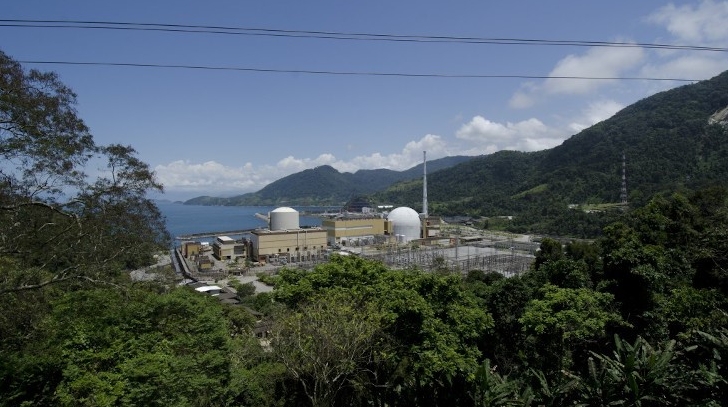
The Safety Aspects of Long-Term Operation (SALTO) mission was requested by Eletronuclear, the owner and operator of the Angra plant. Two IAEA pre-SALTO missions in 2013 and 2018, followed by a pre-SALTO follow-up in 2022, were previously conducted to review the long-term safety of the unit.
The 640 MWe pressurised water reactor was first connected to the grid in 1982. It entered commercial operation in 1985 and its current operating licence expires in December this year. Eletronuclear submitted a licence renewal application to the Brazilian Nuclear Regulatory Authority (CNEN) in 2019 to extend its operating lifetime from 40 to 60 years.
A SALTO peer review is a comprehensive safety review addressing strategy and key elements for the safe long-term operation of nuclear power plants. SALTO missions complement IAEA Operational Safety Review Team (OSART) missions which are designed as a review of programmes and activities essential to operational safety. SALTO peer reviews can be carried out at any time during the lifetime of a nuclear power plant, although according to the IAEA the most suitable time lies within the last ten years of the plant's originally foreseen operating period. SALTO and OSART reviews are carried out at the request of the IAEA member country in which the review is to take place.
During the ten-day SALTO mission from 4 to 13 June, the team reviewed the plant's preparedness, organisation and programmes for safe long-term operation. The mission was conducted by a twelve-person team comprising experts from Argentina, Bulgaria, Finland, Japan, South Korea, the Netherlands, Slovakia, and the USA, as well as two IAEA staff members.
"The team noted the progress in measures taken by the operator to ensure the safe LTO of the plant," said Gabor Petofi, team leader and IAEA Senior Nuclear Safety Officer. "The professionalism, openness and receptiveness for improvements to meet and move beyond the IAEA safety standards in operation are commendable."
He added that "most of the ageing management and LTO activities are already in alignment with IAEA Safety Standards. We encourage the plant to address the review findings and proceed with the implementation of all remaining activities for safe LTO".
The team provided recommendations to further enhance the preparations for safe LTO, including for the plant to consider: consistently addressing and implementing all ageing management programme attributes for civil structures; improving the process of temporary design modifications for LTO; and implementing a comprehensive equipment qualification programme.
"Eletronuclear is strongly committed to satisfy all regulatory requirements and implement all possible improvements that can be derived from international best practices and IAEA Safety Standards," said Abelardo da Cruz Viera, Angra Unit 1 plant manager. "The SALTO findings will help us ensure a safe and reliable completion of LTO activities and improve performance for the next cycle of operation of the plant."
The team provided a draft report to the plant management and CNEN at the end of the mission. A final report will be submitted to plant management, CNEN and the Brazilian government within three months.